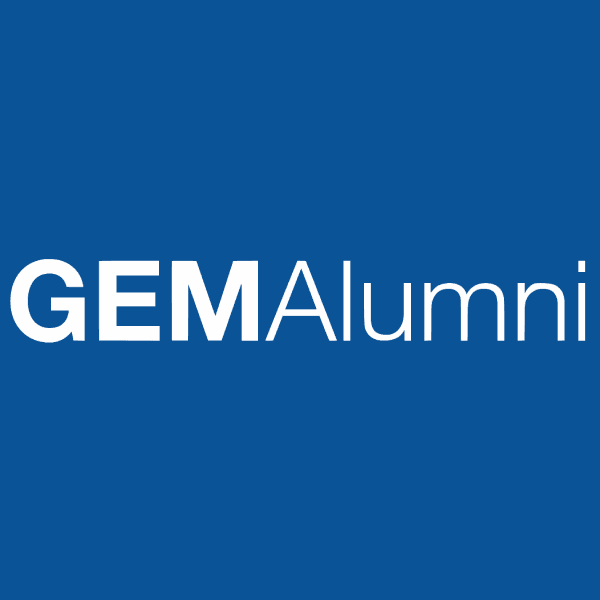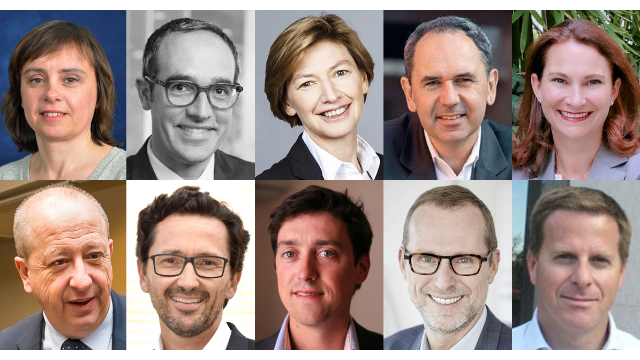Grenoble Ecole de Management brings you an atypical GEM Alumni article. Experts across a variety of industries share their points of view on the worldwide evolution brought on by the covid-19 pandemic in different sectors: HR, commerce, automotive, digital transformation, tourism & hospitality, the energy transition, the food industry, and insurance.
After bringing you the first series of articles that shared the vision of GEM’s professors, researchers, and experts on the topic, we asked our alumni the same questions. 10 alumni experts share their views on how the pandemic is impacting different industries and companies.
HR: An acceleration of substantial, lasting and positive changes
By Anne-Caroline Moeller, GEM PGE 1992,
Managing Director – Lee Hetch Harrison
If the health situation were not so dramatic, and its consequences were still difficult to estimate, we could be delighted with the current situation. With caution, we observe substantial, durable, and positive changes in the way companies are managed happening at an accelerated rate, including:
- The progressive standardization of working from home (for office jobs that can be done remotely), learning the required organization and the disappearance of a certain psychological barriers (erroneous perceptions that distance = loss of control).
- A new approach to managing meetings (duration, punctuality, agenda, and time and role allocation) while benefits such as a carefully elaborated human proximity and increased efficiency are developing.
- New leadership postures oscillating between managing he emergencies of the present situation (a business continuity plan vs time adaptation measures) and the overall concern to overcome the immeasurable economic crisis we will face.
Tomorrow, these Leaders will be able to rely on this agility to focus their commitment on developing human capital and their business with all the skills they require to return to a state of equilibrium” (production vs results).”
Commerce & E-commerce: 3 major crises and principles
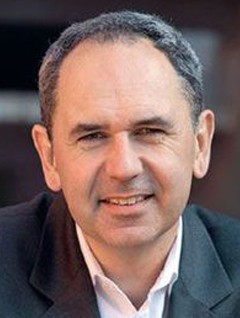
By Guillaume Decitre, GEM PGE 1990
President of Vilvio et du fonds Decitre
Crises are always unexpected. So how can we be prepared for them?
Since leaving GEM in 1990, I have experienced three major crises: September 11, 2001 in Palo Alto with two office colleagues that were in one of the WTC airplanes; the ‘Subprime’ crisis in 2008 when I was in Lyon as the Head of Decitre with 400 employees; and the current Covid-19 crisis during which I am in Paris at the Head of a startup with 23 people and a foundation with 3 employees and 60 volunteers.
I don’t really think that we can completely prepare for a major crisis as in essence they are disruptive and beyond understanding. That being said, I think we can keep in mind three key principles of conduct that guide me:
- Do your best. No one is required to do the impossible, but everyone has to do their best, and there is always room for improvement.
- Show that you are present, attentive, and at the service of your team. Faced with pain, fear, disarray, it warms the heart, gives encouragement and improves the team dynamic.
- Do the right thing. Make the right decisions, and implement the corresponding actions. From experience, these are ALWAYS the most difficult decisions that are the right ones. They sometimes seem inconceivable, often difficult and yet it is precisely these that enable the challenges to be overcome and for growth.
I have also added a new practice, meditation, which allows me to realign, find a calm state and clarity of mind. Last but not least, a crisis is a lesson in humility.
Let’s give thanks to all of the service workers, often underpaid and underappreciated: healthcare workers, shop or supermarkets employees, truck drivers, garbage collectors, EMS, police officers, firefighters…
In the words of Emmanuel Faber, companies should have public interest. Is our job, our company, truly useful to society? The time spent in confinement is a good opportunity to reflect and rediscover.
Industry
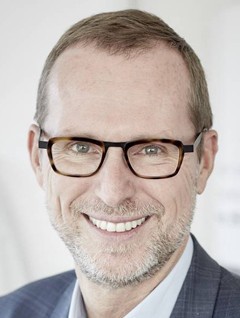
ByNicolas Series, GEM PGE 1991,
President of Zeiss France
Zeiss operates in four sectors of activity. The conditions for recovery will not be the same for each.
The ophthalmic lens (eyewear lenses) market is quite resilient. Along with the resumption of ophthalmic consultations, there will be new prescriptions and new customers for opticians.
In the microscopy and medical sectors, two of our other business activities, we will undoubtedly benefit and make our contribution to the overall plan for research and hospitals announced by the President of the Republic. The perspectives are thus positive. On the other hand, in metrology, a division focused on industry strictly speaking, I think that it will be very difficult if our clients put their investments on hold.”
Automotive industry
By Jean-Philippe Imparato, GEM PGE 1988
PEUGEOT Brand CEO & PSA Retail Director – Groupe PSA
At PSA, we see the next phase as a return to what we will call the ‘new normal’. It will be founded on growing environmental concerns (for the automotive industry that means an acceleration in the switch to electric), and on digital disruption in terms of distribution. Online selling that has been static for so long, it will finally take its place in the world. In short, a future which will be far from ‘unboring’ for us, that is to say fun, and more safe and responsible than ever!
Digitale Transformation... for Society
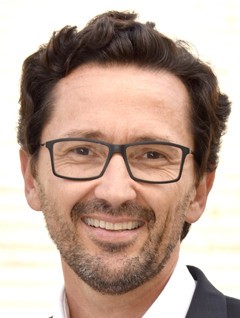 By Jean-Luc Vecchio, GEM PGE 1994,
By Jean-Luc Vecchio, GEM PGE 1994,
CEO Tessi Consulting & Integration Europe et CEO Tessi Suisse
Member of the scientific and strategic committee of the GEM Digital Organizations and Society Chair.
The current resilience of companies is partly possible due to distributed architectures that enable collaborative work to be done remotely; it also includes distribution of trust, because with less direct supervision, everyone takes responsibility, much like self-employed entrepreneurs.
Fewer sources of friction (travel, meetings,…) allow smoother and more robust business decisions to be taken, like the situational intelligence of the ‘knowledgeable‘ locals’.
Intelligence is put to better use, and the virtuous cycle fuels the desire to ‘serve’, which in turn leads to excellence. To better satisfy everyone’s quest for meaning or when the word “share”, a viral online agent, reveals its true essence!”
Tourism & Hospitality
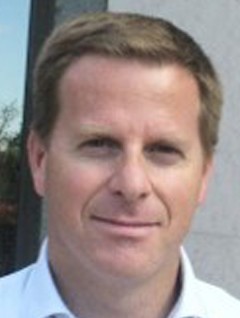 By Pierre Lagrange, GEM PGE 1991
By Pierre Lagrange, GEM PGE 1991
Groupe Accor – Franchise Director of Operations – Paris IDF
THE COVID-19 CRISIS, WHAT WE KNOW…IS WHAT WE DON’T KNOW
While we are the heart of the crisis, lessons should already be learned and the future prepared. There are many questions being raised in our sector:
Back to business in 2020, in 2021, or later?
A greater demand for travel or a healthy withdrawal?
Working from home or the office?
Back to basics or a more developed, stronger desire for sophistication?
Business for purpose or back to to shareholders?...
The only truth is that we don’t know. We have to humble and learn by walking. In the meantime, we facing the crisis: every day the Accor teams open their hotels to healthcare staff and give tangible meaning to our values: hospitality, humanity and generosity.
The energy transition
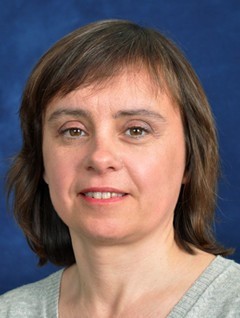 By Anne Bringault, GEM PGE 1989
By Anne Bringault, GEM PGE 1989
Action Climat Network – Energy Transition Coordinator
The health crisis and confinement particularly affect the most modest, the poorly housed and the most vulnerable. The fall in oil prices may delay energy saving policies, in particular, housing renovation policies. These are key for the most precarious households that have difficulty in heating their homes. The transport sector is also particularly affected, both by the drop in activity during the current confinement period, and by the drop in the price of oil.
However, state support for the aviation or the automotive sectors should not lead to a loss of focus on climate objectives, on the contrary. Because it is not a question of going back to things as they were before, but of learning from the current crisis to better protect ourselves from the following ones, in particular, climate crises. The challenge is to build more resilient societies, that are more economical in energy and natural resources, relying on decentralized renewable energies, and being able better able to withstand shocks. France has all the assets needed to make this shift work, if a clear direction is given, in collaboration with the European Union, and thus allowing all relevant stakeholders to work together.
CE-commerce
 By Loic TANGUY, GEM MSE 2006 - PGE 2005
By Loic TANGUY, GEM MSE 2006 - PGE 2005
President & Founder of lesgrappes.com, a platform for direct purchase from wine producers
This prolonged confinement will result in a long-term inactivity for two pillars of our consumer society: travel and major outlets for consumption. With the trend towards social distancing continuing, industry players will have to adapt by adding a digital dimension to their activity, in the same way that online consultations have now become part of the medical sector.
In e-commerce, the two prominent trends will be producers reclaiming digital ownership and small industry players in traditional commerce:
- Setting up local commerce for producers: customers will express their need to move towards consumption that makes sense and with greater visibility of what they are buying.
- The digitalization of small local shops: small local shops will multiply initiatives to sell directly to their customers or through platforms such as Epicery, to fight against Amazon and other e-commerce major players.
The food industry
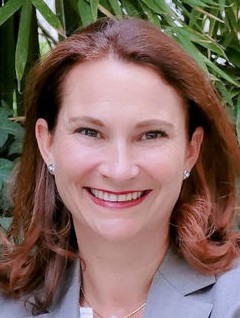 By Béatrice de Noray, GEM PGE 1996
By Béatrice de Noray, GEM PGE 1996
General Director of the Groupe BEL France
The current context for the food industry means that we have to ensure the food supply chain works and this requires everyone’s involvement.
For those of us who are in the dairy industry and in the cheese market, this chain start with breeders who produce milk every day in the west of France. It then goes through our employees in our factories who work on a daily basis to ensure the production of our cheeses: since the beginning of the crisis and to date, our factories in Evron, Pacy, Sablé-sur-Sarthe, Dole and Lons continue to produce. The next step in the supply chain is logistics, and therefore our transporters who provide transportation; we make every effort to deliver to our customers to the best of our ability.
Despite the fact that our sales forces cannot access our stores and that our out-of-home consumption network is no longer operational, we are committed as a company, as far as possible, to maintaining the employment of all our teams. Finally, we are also committed to responding to the needs of hospital populations and those who need it the most at the moment. We are organizing the delivery of over 253,000 products to 76 food banks of the APHP (the public hospitals of Paris), particularly in the east of France. This stage of the evolution of this situation, is the most important one I believe, the one where we all need to work together, we ensure this supply chain, and as a French and family business, take on our economic and societal responsibilities.
Insurance
 By Frédéric ROUSSEAU, GEM PGE 2001
By Frédéric ROUSSEAU, GEM PGE 2001
Deputy General Director of La Mutuelle Générale
I work in insurance, a highly regulated sector, with a long history, old customs, a cautious risk management culture; some critics will say ‘aging industry’. After 3 weeks of confinement, my company proved that we have not need to be embarrassed ts in comparison to other industries deemed more agile. Quite the contrary!
As managers, the Covid-19 crisis put us on the front line. In 24 hours we had to change our operations, the way we manage and the way we respond to our customer’s needs. Above all, we had to make quick decisions by analyzing their impact on both our company and on society. For example, on March 15, deciding to send all of our employees to work from home, while maintaining their salaries without knowing what the government was going to decide on March 17, was a decision taken to protect our employees’ health, our human capital. The same applies to the decisions we took concerning partial unemployment. We focused our energy on alternative sources of activity for our teams, by being innovative in new ways of working, rather than taking the simple route of sending a request to the Ministry of Labor, this solution must be the last resort; Our Company, Mutelle Générale still has 100% of its staff operational as I write.
It is often said that when we are up against the wall, we become more innovative and creative to find solutions. I am experiencing this daily at the moment. However, beyond our ability to find solutions, I find above all that we have (re) become responsible decision makers, agents of change. We are make decisions with good and common sense.
In the company, it took us 18 months to reach an agreement on working from home, with a lot of internal resistance, between the strikes last December and the Covid-19 crisis, the resistance disappeared we now realize that the company functions with 99% of its employees working from home. It becomes normal to have management, board of director and team meetings using TEAMS from our living room!
How will we make our future decisions once we return to normal? Will we keep this ability to decide quickly, to work differently, to take risks? Personally, I think so and I hope so…

Comments0
Please log in to see or add a comment
Suggested Articles
